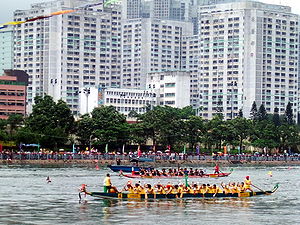Look around you…how many objects to you see that are made in China? My Macbook Pro, my external hard drive, my coffee cup, my iPhone, my lamp, the chair I am siting on…I am surrounded. Typically, I avoid products made in China, or to be more honest, I throw my support around products made elsewhere over Chinese manufacturing. Why? Well, Refinery 29 sums it up well:
As professional purveyors of fashion, we visit designers in studios, seamstresses in ateliers, jewelry craftsman in Brooklyn lofts, and so on. But even then, all we know about the origins of so many of the items we all purchase, wear, and use on a daily basis are three mysterious words: “Made in China.” And what does that really mean?
Mike Daisey, a writer and monologist who is at least as obsessed with Apple products as we are with stacked Marni heels, did his best to answer exactly that question. It’s a pursuit that took him all the way from New York City to the gates of the now infamous Foxconn factory in Shenzhen – a capitalist economic zone north of Hong Kong. Daisey recounts the journey in his stage show, The Agony and The Ecstasy of Steve Jobs as well as in the This American Life segment “Mike Daisey and the Apple Factory,” available here. It’s a hard, revealing listen – something every consumers should hear.
Daisey barrels through red tape and imposing guards to shed light on life in the Shenzen factories, which turn out not to meet even the most basic standards for human rights, according to most Americans. He encounters workers outside the plant who claim to be 12 years old. He sees the nets Foxconn puts up around the edges of its massive complex (it holds up to 230,000 people) in an attempt to end a rash of employee suicides. He visits the dormitories of other plants – crowded, bare rooms you could easily mistake for prison cells.
Most toys are made in China, and when I see “Made in Thailand” or some other country, I automatically assume working conditions are better. That is 100% assumption.
We love getting a good deal. We love bargains. We don’t want to pay the price for our goods they would cost if made in America. We couldn’t afford the overconsumerism of our capitalist culture if we did.
I’ve been reading [amazon_link id=”0618651160″ target=”_blank” ]The Lucky Ones[/amazon_link]. From the time of the railroad and Gold Rush, Americans have thought less of the Chinese. From exclusion to outright segregation, the Chinese have been treated negatively by Americans. Is the same sort of prejudice evident in our lack of concern over the cheap Chinese manufactured products we buy and who suffers to produce them?
Should we care? Yes, we should. It is our karma too, not just CEOs are to blame.
It’s not just about toxins. It’s not just about the environment. It’s also about human rights.

The majority of the factory workers that make those cheap stuff we buy are from poor villages.
They work hard and send their money back home. Their wages are very low by our standards but it’s a lot more than on the farm, and the work not as back breaking. So from their point of view, a better life/human right.
It seems there is now a shortage of labour and wages are going up. Soon those toys will be made in Vietnam or some other cheaper country. Those poor farm workers will be making solar panels and electric cars next, innovative products that we should have made decades ago. Imagine the environment then!
I too typically prefer non-Chiniese made goods but when it comes to that much of money that I have there isn’t much choices and also from the negative experience of buying advertising and packaging over the real value of goods when it comes to Japanese and Western-made products.
I can not agree with this article any more. If everybody in the world makes effort to consume much less – regardless how inconvenient it is, the world would be safer, cleaner and fairer. Who can lead us to this direction?